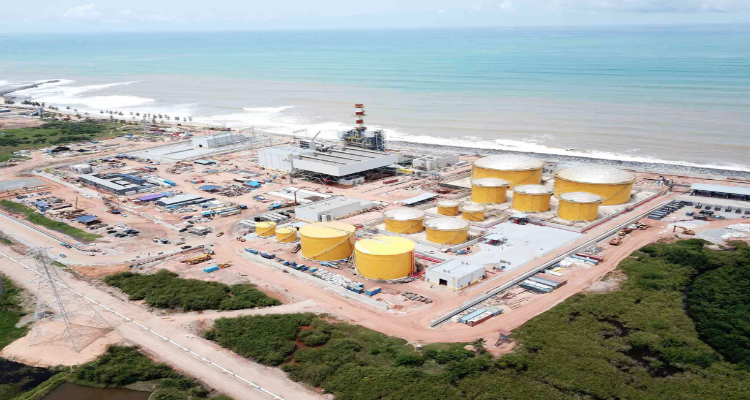CASE STUDY: AMANDI IPP

THE COMPANY:
- Company: Amandi IPP
- Region: Sub-Saharan Africa
- Country: Ghana
- Sector: Power Generation
- Technology: 200MW combined cycle multi-fuel power plant
- Size: USD22m
- Investors: AIIM (AIIF3); Endeavor Energy (majority owner), Amandi Founder Group, Harith
- General Partners, and ARMHarith Infrastructure Fund.
- Investment: Equity
AMANDI IPP’S STORY
Located near Aboadze in the Western region of Ghana, Amandi IPP is a 200 megawatt (MW) multi-fuel combined cycle power plant being constructed by a joint venture between GE and Metka under an EPC contract. The project reached financial close in November 2016 and is currently undergoing final commissioning tests. It is expected to commence operations by the end of 2020. The total project cost of $556m is being financed by senior debt from international debt commercial banks and development finance institutions including DFC and equity from the shareholders.
Amandi IPP is a strategically important project for the development of the country’s energy sector and it will be one of the most efficient power plants in the country. Amandi IPP will sell power to the Electricity Company of Ghana (“ECG”) under a 25-year Power Purchase Agreement using locally sourced natural gas as its primary fuel. Once operating, the plant will produce up to 1,600 gigawatt hours annually, energizing up to one million Ghanaian households.
IMPACT HIGHLIGHTS
- Construction commenced in January 2017 and at the peak of construction over 1,000 jobs were created for local Ghanaians.
- Amandi IPP built a new market for the local community and it supports a local orphanage.
THE ROLE PLAYED BY PRIVATE EQUITY
As long-term infrastructure investors, AIIM recognised an opportunity to make a positive impact and invested in Amandi IPP through its African Infrastructure Investment Fund 3 (AIIF3), which targets core and core-plus infrastructure investments in the power, transport and midstream energy sectors across sub-Saharan Africa. AIIM focuses on applying its investment experience, developed through investing in African infrastructure since 2000, to countries and sectors where the large gap between infrastructure supply and demand provide strong risk adjusted returns for investors. AIIF3 closed in May 2019 and is AIIM’s third pan-African fund with nine other investments.
Private equity has played a key role in Ghana’s energy sector over the past years. As Ghana experienced energy shortfalls, the government partnered with private investors to increase the generation capacity in the country to meet the growing energy needs.
Amandi IPP was founded by the Amandi Founder Group, a consortium of developers with extensive experience of doing business in Ghana and elsewhere in sub-Saharan Africa. The Founder Group partnered with Endeavor Energy and Aldwych to bring the project to financial close.
The project was funded with USD418m of debt funding from a group of 4 lenders and USD138m from the equity investors. The lender group includes U.S. International Development Finance Corporation (formerly Overseas Private Investment Corporation) CDC Group, Nedbank Limited and Rand Merchant Bank. AIIF3 acquired its 13.6% shareholding in Amandi IPP during construction and via its board seat in the company, AIIF3 has influenced key decisions.
Ghana is in the process of implementing several energy sector reforms to improve the viability and sustainability of the sector, and the private sector will remain a key partner as the sector evolves.
A FORCE FOR GOOD
Amandi IPP has actively engaged with the local community from the start of the project, and in particular with the nearby orphanage that sits close to the project site. Working with the EPC Contractor, the project has refurbished the orphanage and continuously provided supplies and school outfits over the construction period, as well as contributing to the children’s education fees. The project teams have supplied computers to local schools and organised a free drop-in clinic day for the local community to be able to see a doctor for help and advice on a regular basis.
The project recently completed the building of a new market place for the Aboadze community, replacing the old, damaged market, which was no longer fit for purpose. The new market allows the community to sell in all weathers and has several amenities which the old market lacked. A new, thriving taxi station has been created, as well as various other formal and informal trading activities which have picked up following the market’s construction. With both direct and indirect value chain creation at each point of market activity, the new construction has had a huge impact on the local community.
